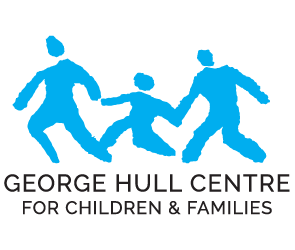Contact Us 416-622-8833
Leadership
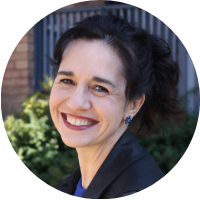
Leticia Gracia, Director
Leticia Gracia, MSW, RSW, is the Director of the Institute of Childhood Trauma and Attachment at the George Hull Centre. Having worked with children and families for over 25 years, Leticia has extensive clinical experience in delivering Dyadic Developmental Psychotherapy (DDP), Cognitive Behavioural Therapy (CBT), family therapy, trauma assessment and trauma treatment. Previously the Director of the George Hull Community Clinic for 6 years, Leticia has a passion for developing and implementing high quality clinical programs to treat the most complex of cases.
Leticia was instrumental in obtaining significant Innovation Grants from the Ontario Centre of Excellence for Child and Youth Mental Health to implement DDP in the Community Clinic and to develop a school-based socio-emotional learning program in partnership with the Toronto Catholic District School Board. Leticia is highly respected by her colleagues and peers in the children’s mental health sector and her excellence in clinical leadership was recognized by the Hospital for Sick Children with the Elizabeth Manson Award (2017).
Leticia has taken a leadership role at various local and provincial tables to address access to children’s mental health services by at-risk children and youth. She is on the executive of the Developmental Trauma Action Alliance, a provincial committee with over 100 members, that advocates for improved services for children and youth with developmental trauma. She has regularly presented on trauma and attachment at numerous conferences in Ontario, including recently at the Centre for Addiction and Mental Health, the Hospital for Sick Children grand rounds and at Children’s Mental Health Ontario conferences.

Dr. Sian Phillips, Psychologist
Sian Phillips, Ph.D. is a psychologist who has a private practice and specializes in the assessment and treatment of children who have experienced developmental trauma and the families that look after them. She consults to a number of agencies that are committed to using DDP as a framework to understand and work with biological families as well as foster and adoptive parents. She has developed a specialized school program to work with students whose attachment and trauma difficulties prevent them from accessing regular education. Staff are trained in DDP and DDP principles are an integral part of the programming. She also supports school boards who are using DDP to developing trauma-informed schools. She has two recent publications: Belonging: A Relationship-Rased Approach for Trauma-Informed Education (Phillips, Melim and Hughes 2020) and Working with Relational Trauma in Schools (Golding, Phillips & Bomber, 2020).

Dr. James Worling, Consulting Psychologist & Forensic Psychologist
James Worling, Ph.D., C. Psych., is a clinical and forensic psychologist in full-time private practice who has worked extensively with adolescents who sexually offend, and their families, since 1988. He also works with children and youth who have experienced sexual victimization and with children under 12 who have engaged in harming sexual behaviours. During this time, Dr. Worling has presented many workshops nationally and internationally, and he has written a number of professional articles and book chapters regarding the etiology, assessment, and treatment of sexually abusive behaviour. Dr. Worling is a Fellow of the Association for the Treatment of Sexual Abusers, and he serves on the editorial board for their journal, Sexual Abuse.
In addition to his work for the Institute, in April 2024 Jim joined the George Hull Centre as the Director of Clinical Services and Research, where he is providing specialized clinical services in the SAFE-T (Sexual Abuse: Family Education and Treatment) Program.

Dr. Taylor Armstrong, Child and Adolescent Psychiatrist
Taylor Armstrong, MD, FRCPC is a child and adolescent psychiatrist who works as Psychiatric Advisor for Trauma Services for the Institute as well as at The George Hull Centre (GHC) in their Community Clinic.
Dr. Armstrong attended medical school and completed his residency in psychiatry at the University of Toronto, where he is currently an assistant professor within the Faculty of Medicine. He is an active clinical teacher and supervisor, and serves as site coordinator for the educational activities of psychiatry residents who train at GHC. Within the Department of Psychiatry he contributes to postgraduate education through curriculum design and direct teaching, and is the Wellness Lead within the subspecialty training program for Child and Adolescent Psychiatry.
Clinically, Dr. Armstrong works with children and adolescents across a wide range of presenting concerns. His interests are in the areas of neurodevelopmental disorders, attachment and developmental trauma, the role of schools in improving the mental health of our children, and the mental health of high performance athletes.

Anna Rupert, Senior Manager, Research & Strategic Priorities
Anna Rupert (she/her), MHSc, MSc, DrPH (student), Reg. CASLPO, is a speech-language pathologist, health and social care leader, researcher, educator, and consultant in Toronto. Anna joined the management team at the George Hull Centre in 2016, managing the Centre’s publicly funded preschool speech and language services which provided prevention and early intervention services for over 1,500 families each year as part of the Toronto Preschool Speech & Language System. In 2022 Anna joined the leadership team at the Centre’s Institute of Childhood Trauma and Attachment, where she currently works as the Senior Manager of Research and Strategic Priorities. In this role, she leads the work and development of the Institute’s Research Pillar and oversees and contributes to major projects, in addition to her role as a trainer/subject matter expert.
Anna holds master’s degrees in Speech-Language Pathology and International Health Policy from the University of Toronto and the London School of Economics, respectively. She is currently completing a Doctor of Public Health (DrPH) at the University of Toronto’s Dalla Lana School of Public Health and holds status as an Assistant Professor in the University’s Speech-Language Pathology department. Anna’s research and consulting focuses on the inclusion of rehabilitation, prevention, and early intervention services in global health systems; system and service planning, evaluation, and improvement; and the relationship between child development (focusing on communication), child and family mental health, trauma, and trauma-informed care. Throughout her career, Anna has worked with a wide variety of clinical populations, in many different systems and practice settings. All her work has been fueled by the belief that communication is central to who we are and at the core of the most important and protective factor in our lives – our relationships.

Aimee Kenney, Manager of Training
Aimee Kenney, MSW, RSW, has many years of clinical work experience in child and adolescent mental health, having worked in community agencies, inpatient and outpatient hospital settings, and live-in treatment centers. She is well versed in implementing evidence-based therapies, including DDP, Eye Movement Desensitization and Reprocessing (EMDR), CBT, Trauma-Focused CBT (TF-CBT), and Dialectical Behaviour Therapy (DBT). While at The George Hull Centre as a clinician, Aimee demonstrated exceptional clinical skills and was awarded the Libby Ridgely Award for Clinical Excellence. Aimee co-facilitates the Centre’s Family Therapy Training Program and serves as the EMDR clinical lead for the community clinic. She brings experience working from an anti-oppressive and anti-Black racism framework with youth and families from diverse backgrounds. Nearing the end of her DDP practicum to become a certified DDP therapist, Aimee is also working to become a certified fidelity coach for the Circle of Security Parenting group program (COSP) as well as working toward EMDR certification.
Institute of Childhood Trauma & Attachment Advisory Board
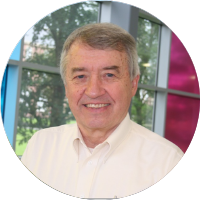
Dr. Dan Hughes, Honorary Chair
Dan Hughes, Ph.D. is a clinical psychologist who founded and developed Dyadic Developmental Psychotherapy (DDP) for the treatment of children who have experienced abuse and neglect and demonstrate ongoing problems related to attachment and trauma. This treatment occurs in a family setting and the treatment model has expanded to become a general model of family treatment. Dan has conducted seminars, workshops and spoken at conferences throughout the US, Europe, Canada, and Australia for the past 20 years. He is also engaged in extensive training and supervision in the certification of therapists in his treatment model, along with ongoing consultation to various agencies and professionals. He is the founder of the Dyadic Developmental Psychotherapy Institute, which is responsible for the certification of professionals in DDP. https://ddpnetwork.org.
Dan is the author of many books and articles. These include Building the Bonds of Attachment, 3rd Ed. (2017), Attachment-Focused Family Therapy Workbook (2011) and, with Jon Baylin, Brain-Based Parenting (2012) and The Neurobiology of Attachment-Focused Therapy (2016). Along with Kim Golding and Julie Hudson, Dan has recently had published Healing relational trauma with attachment-focused interventions: Dyadic Developmental Psychotherapy with children and families (W.W. Norton, 2019).

Dr. Faye Mishna
Faye Mishna, Ph.D., joined the Factor-Inwentash Faculty of Social Work at the University of Toronto in 1999 as an Assistant Professor. Prior to her appointment at the Faculty she was had over 20 years of experience in children’s mental health including in the role of Clinical Director of a children’s mental health centre. Faye served as the Dean of the Faculty from 2009-2019 and is currently a Professor in the Faculty and cross-appointed to the Department of Psychiatry at the University of Toronto.
Her program of research focuses on bullying/cyber bullying and sexting among youth, informal cyber technology use in social work practice, and clinical practice. An integral component of her research entails collaboration with community agencies and organizations. Faye is the author of a book on bullying published by Oxford University Press in 2012 and is co-author of a book on bullying in Canada, published by Oxford University Press in 2015. She has a small private practice in psychotherapy and consultation.

Dr. Ruth Lanius
Ruth Lanius, MD, PhD, Professor of Psychiatry, is the director of the posttraumatic stress disorder (PTSD) research unit at the University of Western Ontario. She established the Traumatic Stress Service and the Traumatic Stress Service Workplace Program, services that specialized in the treatment and research of Posttraumatic Stress Disorder (PTSD) and related comorbid disorders. She currently holds the Harris-Woodman Chair in Mind-Body Medicine at the Schulich School of Medicine & Dentistry at the University of Western Ontario. Her research interests focus on studying the neurobiology of PTSD and treatment outcome research examining various pharmacological and psychotherapeutic methods. She has authored more than 150 published papers and chapters in the field of traumatic stress and is currently funded by several federal funding agencies. She is the recipient of the 2019 Banting Award for Military Health Research. She regularly lectures on the topic of PTSD nationally and internationally. She has recently published a book Healing the traumatized self: consciousness, neuroscience, treatment with Paul Frewen.
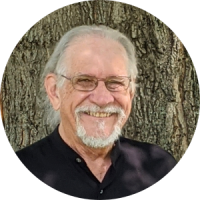
Dr. Ed Hamlin
Dr. Ed Hamlin, Ph.D., is a distinguished psychologist and the Clinical Director of the Institute for Applied Neuroscience in Asheville, North Carolina. He holds adjunct faculty positions as a Professor at Western Carolina University and an Associate Professor in the Department of Psychiatry at the University of North Carolina Medical Center. Dr. Hamlin’s expertise spans clinical practice, research, and education in applied neuroscience and the intricate relationships between brain/mind operations.
With a career that began in the mid-1980s, Dr. Hamlin has extensively practiced and taught quantitative EEG, neurofeedback, and applied psychophysiology. His clinical work and research focus on neuroplasticity and the potential for modifying maladaptive brain organization patterns. He is particularly interested in the effects of early abuse and neglect on brain development and the neural activity in individuals with eating disorders.
In addition to his clinical and research endeavors, Dr. Hamlin is a sought-after consultant and mentor for the clinical staff at various facilities throughout the world. He regularly presents workshops and lectures on applied neuroscience, sharing his knowledge and insights with professionals in the field.
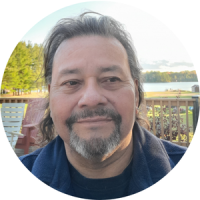
Joe Elkerton
Joe Elkerton is an Indigenous Torontonian, a member of the Chippewas of the Thames First Nation, and a child of survivors of the Indian Residential School System. Joe has an impressive career of working with some of the most vulnerable communities. He started his ministry work with the Salvation Army and then eventually become a Pastor of an indigenous church as part of the Scott mission. Joe has worked with survivors of human trafficking, notably starting a safe house for women in need of shelter and protection from their traffickers. He also has a vested interest in the well-being of Indigenous families going through the child welfare system and was the president of Toronto’s Native Child and Family Services for many years. In his extensive community work, Joe has been on the Aboriginal Council for World Vision Canada and the Aboriginal Task Force for the Evangelical Fellowship of Canada, as well as the Governance Committee for the Ontario Association of Children’s Aids Societies. He has served as a Training Officer with the Canadian Forces and was an Instructor at the National Native Bible College in Deseronto, Ontario. Joe has a passion for developing outreach programs and educational workshops for Indigenous communities on and off reserve.

Elizabeth Warner
Elizabeth Warner, Ed.M. Psy.D., is a licensed psychologist with 40 years of experience working with children and families in psychiatric inpatient and outpatient settings, schools, mental health clinics, and residential treatment. Early in her career, she spent 15 years working with severely disordered children including traumatized children and their parents, using innovative treatment methodologies and videotape for process study at the Language & Cognitive Development Center.
In the last 12 years, Elizabeth’s focus has been on the development of innovative treatment for children from 1.5 years to 22 years whose lives have been impacted by chronic stress and complex trauma, and their caregivers. As project director at the Trauma Center at JRI, a center of excellence in trauma treatment, training and research, she oversaw training and consultation in Sensory Motor Arousal Regulation Treatment (SMART) for outpatient, in-home, therapeutic day school, and residential treatment settings in the U.S., Canada, and Hong Kong. She collaborated with community-based therapists to develop SMART applications for in-home therapy and constructed two videotape coding systems for studying regulatory processes in treatment.

Ana M. Gomez
Ana M. Gómez is a leading expert in the field of complex trauma, dissociation, and intergenerational trauma, with a particular focus on children and adolescents. She is the founder and director of the AGATE Institute in Phoenix, AZ, a psychotherapist, author, and international speaker who has trained thousands of clinicians worldwide through her workshops, advanced trainings, and keynote presentations. With 30 years of clinical practice, Ana is a recognized authority in EMDR therapy and its application with children, adolescents, and families. She is a fellow of the International Society for the Study of Trauma and Dissociation (ISSTD) and the author of EMDR Therapy and Adjunct Approaches with Children: Complex Trauma, Attachment, and Dissociation, as well as her most recent book, EMDR-Sandtray-Based Therapy: Healing Complex Trauma and Dissociation Across the Lifespan. In addition, she is the co-editor of The Handbook of Complex Trauma and Dissociation in Children: Theory, Research, and Clinical Applications and has contributed numerous book chapters on EMDR therapy, complex trauma, dissociation, and intergenerational trauma. Her work has been recognized with distinguished honors such as the Francine Shapiro Award (EMDRIA, 2023), the Hope Award from Sierra Tucson (2012), and the Distinguished Service Award from the Arizona Play Therapy Association (2011).
